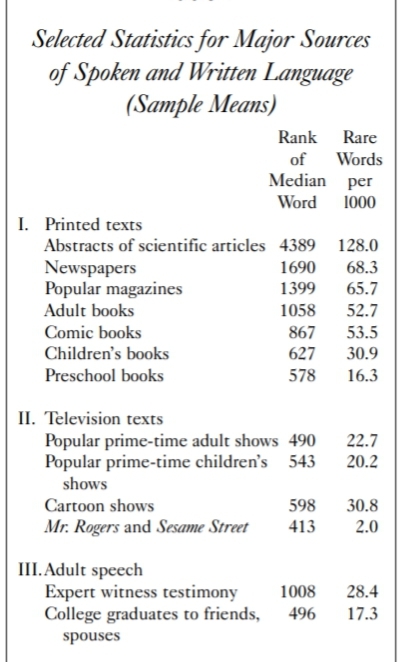Many people round out their day by settling down with a good book. Doing so is a great way to limit your screen time leading up to bed and engaging in a hobby that is personal and enjoyable to you.
And while this is fine if you’re reading unimportant material just for fun– such as flipping through a celebrity magazine or reading a work of fiction that’s actually more of a guilty pleasure–reading anything with information in it that you want to retain is actually better suited for the morning.
Before we proceed, if you're looking for great book ideas, check out this playlist of book summaries:
Now, in this article, we are going to look at why it’s better to read in the morning and the benefits that this practice can offer you.
What is the Benefit to Reading in the Morning?
People are typically tired and stressed after a long day, and certainly aren’t functioning at their optimal level of performance.
On the other hand, people are refreshed in the morning, and their brains are in a welcoming state for acquiring new information.
Reading in the morning greatly increases your chances of remembering the information, as your mind is fresh and ready to appreciate and remember new, complex concepts.
Let’s take a look at a few other reasons why it’s better to read in the morning than at night that are backed by scientific research.
6 Reasons Why it’s Better to Read in the Morning Than at Night
Before we go into the reasons why it’s better to read in the morning than at night, let’s take a minute to address the fact that reading in general is such a healthy choice for a pastime, so none of this is to say don’t read at night.
It really just depends on the material you’re reading and your purpose for reading it. And, considering 42% of college grads stop reading books entirely after obtaining their degree, any reading can be considered to be a win.
Also, I think we all know by now that there is always an exception to a rule. So if your brother’s wife’s sister is super successful in her professional and personal life and you know she reads at night, that’s ok. (Reading can be a fun thing to do at night as part of you're evening routine.)
We are just looking at the research and data that supports the fact that a typical person’s cognitive functioning is better prepped to read in the morning than at night.
Here are reasons why research has shown that it’s better to read in the morning if the material is something that you really want to focus on, learn, and remember.
1. Your Mood
Researchers have turned to Twitter to study the pattern of people’s moods, and their worldwide results turned out to be pretty steady.
The study found that 2.4 million people from 84 countries indicated through 509 million tweets over the span of 2 years that their moods followed a regular daily rhythm. And these mood rhythms were similar, despite a wide variety of people’s cultures, geographic locations, and religious backgrounds.
The results found that people typically wake up in a relatively good mood, making these early morning hours ideal for sticking to a routine of healthy habits such as reading. By and large, people wake up in a good mood that slowly declines with time, which the researchers found correlates with the effects of sleep and circadian rhythms.
When you’re in a good mood, it is much easier to engage yourself in the material you’re reading and focus and analyze the main points that the author is communicating.
This makes clear sense if you think about it, because when you’re in a bad mood, you’re likely distracted by external factors that are on your mind and you may not actually care as much about whatever you’re reading.
Also, you’re certainly less likely to take the time to analyze what you’re reading if you’re irritated by something else that’s going on in your life.
2. Your Chronotype
If you think back to a while ago when we talked about chronotypes, you may recall that the time of day during which you perform at an optimal level is hardwired into your DNA.
If you’re like most people, your analytical capacity and your ability to stay alert peaks in the morning hours. In addition, you’re more likely to remember new information if you learn it in the morning.
The reason you want to read when your analytical capacity is high is because you use these skills to break down complex pieces of information in order to better understand the broader picture of what you’re reading. You consider things one step at a time to develop your own conclusions, answers, or solutions.
Your analytical skills help you look at things from a variety of viewpoints, which ultimately helps you recognize cause and effect. When you’re reading in the morning and using your analytical thinking skills, you’re able to use facts to support any conclusions you come to.
Because books tend to have a beginning, middle, and end, reading encourages you to think in sequence, which offers structure, which is a very beneficial mindset to have as you go into your day and face real world problems that you need to solve.
You should live in congruence with your innate biological clock, which begins each day in acquisition mode. It is during this time that your ability to learn and retain new information is at its peak.
3. Your Sense of Motivation
If you’re like me, your motivation can come and go pretty quickly. Sometimes before going to bed, I will feel so motivated to conquer certain tasks the next day that I’ll lose some sleep over it.
But, when the next day rolls around and I start to get caught up with other things, I lose sight of those motivating factors.

However, by reading inspirational books or articles in the morning, that sense of motivation stays fresh for the rest of the day, and you will feel inspired to emulate the work of others who either authored the texts that you read or who were the subject of them.
And, if what you’re reading is a personal development or self-improvement book, you can reduce the effects of mood disorders for the rest of the day or even diminish symptoms of mental illnesses such as anxiety, panic disorders, and depression.
4. Fresh Mind
Upon waking up, both your body and mind are fresh, so any information that you read at this time will be easier to recall in the future. Not only is this a good way to learn things faster, it also ensures that you will mentally store the information for the longest amount of time.
When reading with a fresh mind, it can lead to actual changes in your brain. According to the study, the connections in the left temporal cortex of your brain (which is the part of your brain that’s associated with your use of language) is activated.
What's important here is that this heightened activity continues after you put down your book, which means you’re setting yourself up to be at a mental advantage for the rest of the day.
5. You Have Physical Support
Your stamina is high in the morning and you’re more energized to absorb the information you’re reading. Because your physical energy levels have such an impact on your mental energy levels, you’re in a better position in the mornings than you are at night to gain new knowledge.
So, take advantage of this physical support that you have in the morning to benefit your potential to learn new things or read an intriguing story.
The calm morning environment with limited disturbances is also conducive to helping you absorb new information, so your physical environment is also a great support for your morning reading habits.
6. Your Vocabulary
This table from the Journal of Direct Instruction illustrates the frequency “rare” words are used in various types of media and in everyday speech.
As you can see, even reading children’s books exposes people to a larger vocabulary than adult speech. This shows that the more you read, the more words you will learn and the larger your vocabulary will be.
Having consistent exposure to new words in a context that makes sense to you helps you learn their meaning quickly, allowing you to have more words stored in your brain to use in your own everyday conversation and writing.
Your increased vocabulary will in turn increase your communication skills and your ability to be articulate in personal and professional situations.
Learning new words in the morning will help them be in the front of your brain as you go into the day, increasing your chances of actually remembering and using the word.
Final Thoughts on the Benefits of Reading in the Morning
If you want to carve out more time in the mornings to read, you may need to wake up a bit earlier or adjust your morning routine in some way.
Once you begin this new habit, stick to it every day, regardless of anything new that may come your way. Even if you have to travel for work or you’re going on a vacation, bring your book along with you so you can read in the morning.
Remember, we aren’t saying that reading during other times in the day is bad, there are just some unique benefits to reading in the morning that–when given a choice–can help you be more intentional about your reading schedule.
Now, if you're looking for more resources to help you build a reading habit, be sure to check out these blog posts:
- How to Read Faster and Retain More: 9 Steps to Increase Your Reading Speed
- 13 SMART Goals Examples to Improve Reading Comprehension
- 7 Ways Read More Books & Retain the Information

Connie Mathers is a professional editor and freelance writer. She holds a Bachelor's Degree in Marketing and a Master’s Degree in Social Work. When she is not writing, Connie is either spending time with her daughter and two dogs, running, or working at her full-time job as a social worker in Richmond, VA.



